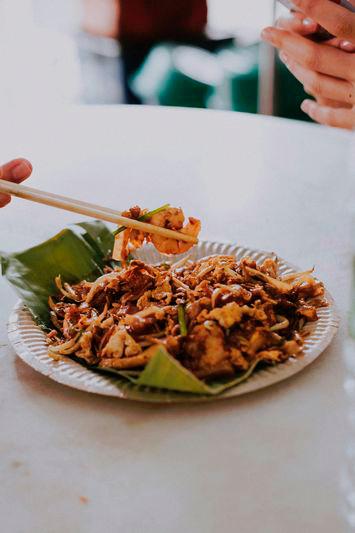PETALING JAYA: Food courts and coffee shops in Penang will face revocation of licences if they allow foreigners to cook 13 specific local dishes from next year onwards, according to a new ruling nearing approval.
The dishes include Nasi Lemak, Assam Laksa, Pasembor, Mee Sotong, Char Kway Teow, Kway Teow Soup, Prawn Mee, Curry Mee, Won Ton Mee, Loh Bak, Chee Cheong Fun, Char Kway Kak and Oyster Omelette.
Currently, this rule applies solely to hawker centres and food courts owned by the Penang Island City Council (MBPP).
ALSO READ: S’gor reviewing policy banning foreign cooks at hawker stalls
MBPP councillor Tan Soo Siang revealed the move follows numerous complaints aimed at preserving the authentic taste of local cuisine.
“At the moment, we are in the final stages of drafting the paper to set a condition that the 13 foods are not allowed to be cooked by foreigners.
“Once the paper is passed in our full council, we will certainly give a grace period for them to do the necessary adjustments.
“Most probably, the new ruling will be enforced next year.
“Those which fail to comply will first be issued with notices. If they still fail to comply, then they will have their licences revoked,“ she told New Straits Times.
This policy builds on a previous 2014 state government ban, implemented in 2016, restricting foreign cooks at all MBPP hawker centres and food courts.
The upcoming ruling has sparked varied reactions online.
Alvin Wong, a Penangite, supports the initiative as a means to safeguard the heritage of local cuisine.
“This is not discrimination but a much-needed move to ensure that the skills are passed down, although I must admit hawking is hard work,“ he stated.
John Kee echoed this sentiment, arguing that only locals truly understand the cultural nuances of the food.
Conversely, some oppose the regulation.
Todd Bancroft argued that cooking ability transcends ethnicity and nationality, while Lean Soh criticised the measure as regressive and discriminatory.
“Such discriminatory practices have no place in modern society.
Just imagine the uproar if the shoe was on the other foot (for example Malaysians should not be allowed to cook cakes, pastries, and others) as that is not their ‘traditional’ food,“ Soh said.
BK Teh emphasised that hygiene, taste and reasonable pricing are the most critical factors.









